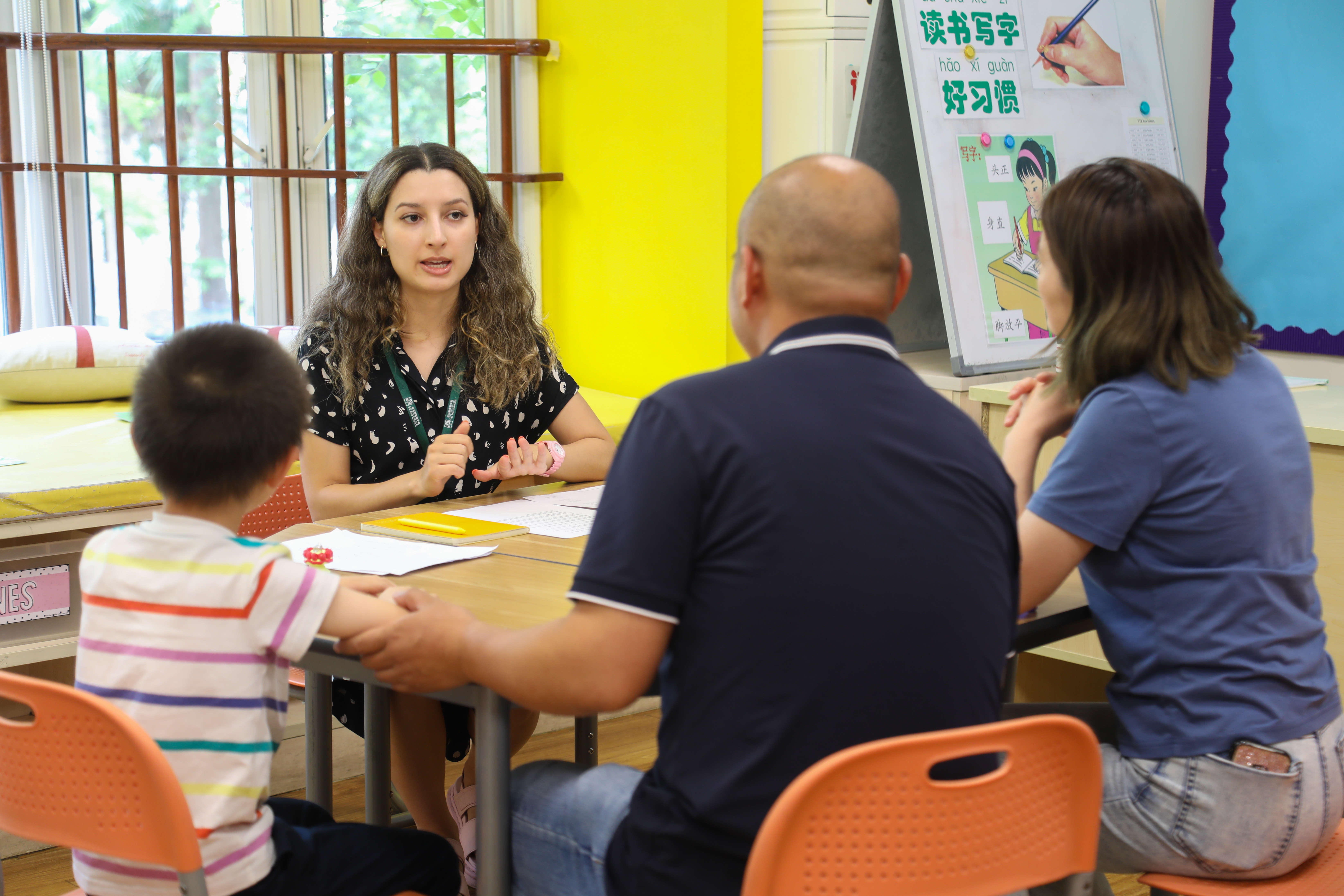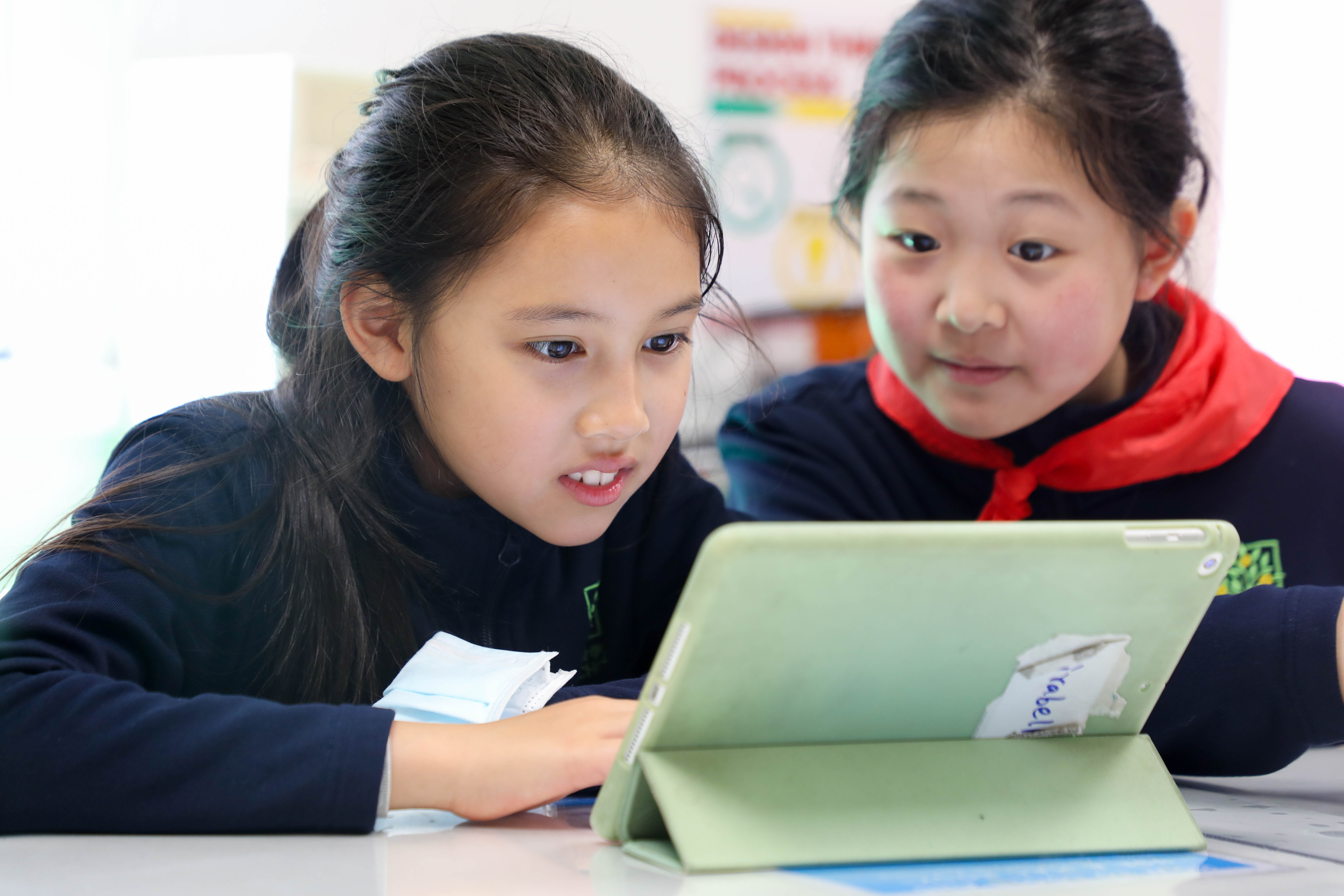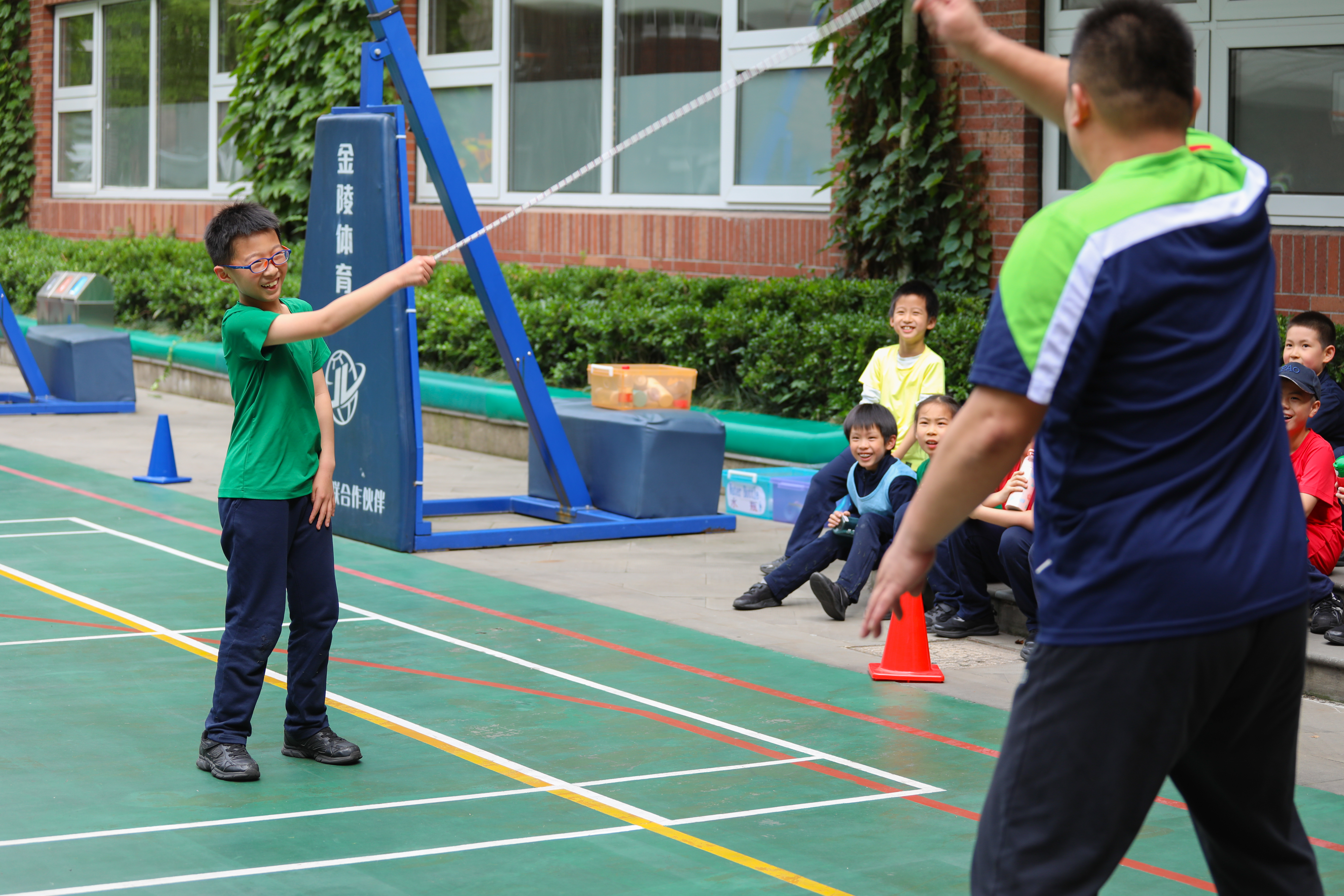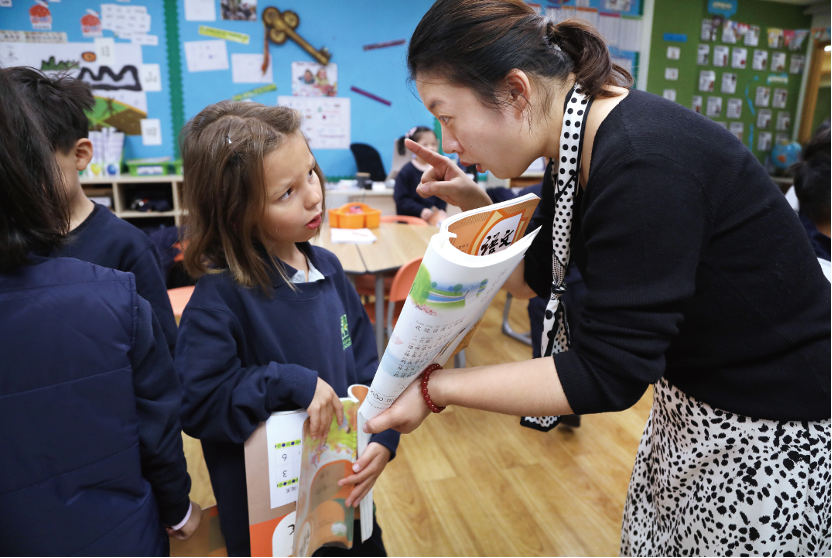Pao School has always attached great importance to building a strong relationship with parents. One method of doing this is the Primary School's bi-weekly education reflection, shared through the principal’s newsletter, which keeps parents up to date on the latest trends in education, such as character education, understanding different types of learners, and building a strong parent-child relationship.
For teachers, the process of selecting topics and approaches to student guidance based on the growth needs of children and parental concerns provides an excellent opportunity for reflection and learning. You can find previous education reflection articles here: Education Reflection | Cultivating Empathy; Education Reflection | Joining hands to build virtue; and Education Reflection | Developing Cognitive Skills Through Play.
Since the beginning of this school year, Crick Chen, Primary Deputy Principal and Michelle Ip, Director Primary Academics, have shared educational theories and practical advice with parents on helping children establish healthy routines and on bilingual education, respectively. In this issue, Nectar Wang, Director of Lower Primary and Lead of Character Education will share some suggestions on how to effectively encourage children.

Parents often ask: "How can we best use praise in order to support our children?" Some are reluctant to praise their children too readily, worrying that it might make them vain and complacent. Other parents feel that despite praising their children freely, no increase in confidence seems to result. When the child faces difficulties, rather than confidently tackling, he or she becomes withdrawn. Yet other parents think their child have become immune to compliments.
So, what is the root of these problems? Today's article will focus on how to effectively encourage children, in order to provide inspiration for both parents and educators.
"You are amazing." "You are very intelligent." "You are so fast." "You are very focused." These are some of the phrases commonly used by parents to praise their children. Upon closer examination, these statements have one thing in common - they focus on qualities and outcomes, without indicating what the child do to bring them about. They can give the child a sense that good results are desirable and bad results are to be feared, but without any sense of empowerment. This kind of mindset deepens the binary opposition between good and bad, causing the child to feel proud yet unable to replicate their success when praised, and to feel discouraged, withdrawn, perhaps pretending not to care, when praise is withheld, without bringing about productive behavioral changes.


The reason for this failure lies in this: Such encouraging words do not explicitly explain to the child what is ‘good’, or the factors that contributed to the praised outcome. The child is left unsure about which aspects of their behaviour were key to achieving the result in question, and so remains uncertain whether they can repeat (or avoid) it. For example, when a student wins first place in a running competition, their parents might say, "You were so fast!" The child feels happy and enjoys the success. This situation may be repeated several times, until one day another student who is faster appears, and the child doesn't win first place, and doesn't hear the same encouraging words. Despite parental consolation, saying it is okay to lose, and encouraging them to work harder to win first place next time, the child's inner state becomes uneasy. He or she may hesitate to participate in future competitions, worried about failure, and uncertain about his or her capabilities.
This situation occurs because parental encouragement does not focus on specific behaviours, but only on outcomes and qualities. The child is unclear about what exactly is good and what needs improvement, making them uncertain about their performance in future competitions.
So, how can we effectively encourage our children by giving them compliments?
1. Focus on specific behaviours
Empty praise should be avoided. When children are young, they enjoy being praised, but as they grow older, they become more resistant to it. This requires reflection and updating of our ideas about praise. Effective praise is achieved by directing it at specific behaviours, thereby forming qualities and encouraging children to continuously replicate those behaviours. The simplest and most practical strategy is to use the following communication phrases:
• I saw that you...
• I noticed that you...
• I observed that you...
• I heard that you...

For example: “I noticed that you were a bit distracted while doing your homework earlier, but as soon as you heard mom’s footsteps, you immediately refocused on your studies. I find it remarkable that you are able to control your attention and master this skill. I hope that next time, even without mom’s presence, you will notice your distraction and bring your attention back.” By using these approaches and language, children can feel that their parents are genuinely paying attention to them, rather than going through the motions. At the same time, it the praise is made to feel accurate and convincing, resulting in a desired effect.
2. The internal benefits of reinforcing behaviour
From a behavioural perspective, behaviours that bring benefits are more likely to evoke an increase in intrinsic motivation, so that individuals are more willing to persist in those behaviours. On the other hand, behaviours bringing no benefits are more likely to lead to a decline in executive willpower. Therefore, when praising children, we need to focus on and emphasize the internal benefits of their behaviour in order to stimulate their intrinsic motivation and encourage behaviour replication.
Taking the example of a running race mentioned earlier, there is a better type of compliment than "You were really fast.” It is more effective to say something like: "I noticed that you were very focused before the race, so when the starting whistle sounded, you reacted immediately and sprinted ahead, surpassing the other competitors by a large margin. In the end, you took first place. Your focus and reflexes were incredible."
This praise is specific and clearly communicates the benefits of specific behaviour to the child. This makes it more likely than the same behaviour will be replicated in the future.

Here are some further examples. If a child achieves excellent test results, parents can praise them in words such as: "I saw that you reviewed all the incorrect questions before the exam. This helped you eliminate knowledge blind spots, so you were able to easily handle the exam, and receive an excellent score. This study method is really good." Similarly, it might be said: "I noticed that you hadn't encountered some of the questions before, but you applied your ability to use knowledge in different contexts. This skill is amazing because it allows you to learn quickly and then apply knowledge effectively."
By emphasizing the specific benefits of the behaviour, children are more likely to replicate these actions and qualities in the future.
3. Leveraging the excellence of “other student”
The method of ‘peer comparison’ is often criticized. In fact, some parents do not even mention other children‘s accomplishments in front of their own, thinking it could lead to their child feeling inferior and developing a sense of jealousy. However, does this mean that we really cannot talk about other children? Of course not. When we do, we should focus on their actions and aim for our children to learn from the excellence of others.
For example, when another child receives the honor of being the ‘weekly shining star’ who brings Q bear home, you can ask your own child: "What can you learn from her?" Or, alternatively, "I heard she has been particularly fond of reading a set of picture books recently. I have also bought a set. Let's explore them together." By doing this, we are recommending a role model behaviour to our child, encouraging them to learn from excellence.
Parents can be nervous about praising their children, but when used with understanding praise and compliments are a crucial child-rearing tool, which both parents and children are able to enjoy. Try to avoid praising success, but instead praise those behaviours which bring about success. There is no better way to ensure that success will then follow.
